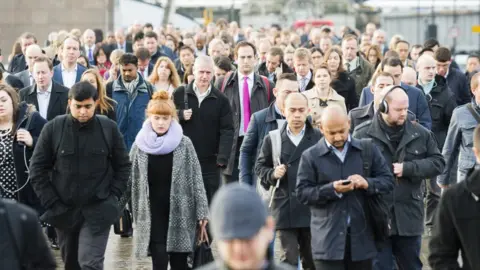UK's 2021 census could be the last, statistics chief reveals
 Getty Images
Getty ImagesThe 2021 census could be the last one ever to be carried out, the UK's national statistician has revealed.
Prof Sir Ian Diamond said he was examining cheaper alternatives to the 10-yearly compulsory questionnaire delivered to every UK household.
The census, which has been conducted for almost 200 years, provides valuable population information to help councils and the government plan services.
But Sir Ian said he was "hopeful" data from other sources could replace it.
"The census is frankly as good as it is possible to get," he said.
"Let's see if we can get to a similar place, more quickly, using different strategies."
Although the roots of census-taking in Britain can be traced back to the Domesday Book in 1086, it was not until 1801 that an official census was conducted, when the population of England, Scotland and Wales was recorded to be nine million.
However, statisticians regard the 1841 census, when each head of the household was required to fill in a form on behalf of everyone living at the address on a particular day, as the first modern census.
The method has stood the test of time - with more questions about the characteristics of each household member added over the years - but costs have ballooned.
The Office for National Statistics, which has responsibility for the census in England and Wales, said an estimated £906m would be spent next time - nearly double the figure for 2011.
The censuses for Scotland and Northern Ireland, which are conducted at the same time, are administered separately.
'Better and more granular'
Sir Ian acknowledged that costs had been rising, though he pointed out that a drive to get most people to complete next year's census online would allow resources to be targeted at those who were less likely to respond.
The former University of Aberdeen vice-chancellor said his officials would undertake research, alongside the census, to find out if accurate information could be obtained via other means, such as the Ordnance Survey, GP lists, council tax records and driving licence details.
He said such "administrative data" - combined with regular, large-scale population surveys - could provide "better and more granular" information in a "cheaper" and "more timely" way, though he said no decisions had been taken.
"We'd only move away from [the census] if we can replicate that richness of data," he said, adding that the government would have the final say after the census results and research had been evaluated, in 2023.
In a 2018 white paper, the government said its "ambition" was that "other sources of data" would be used after 2021, though it did not explicitly say that the census itself should be scrapped.
